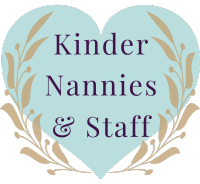Finding the Perfect Spanish-Speaking Nanny: A Case Study of a leading London Nanny Agency
Finding a professional spanish speaking nanny for family 'P' in London.

Introduction: In the international city of London families often seek nannies who provide excellent childcare but also bring a touch of bilingualism and cultural diversity into their homes. This case study highlights the success story of a reputable nanny agency in London, Kinder Nannies, which successfully identified an exceptional Spanish-speaking nanny for a high profile London family 'P'. The nanny's abilities in both childcare and Spanish language skills played a vital role in developing the language learning and cultural enrichment of their 2 young children.

The Client Brief:
A high-profile London family approached Kinder Nannies agency, seeking a nanny fluent in Spanish to provide professional childcare to their children and encourage their learning of Spanish. The family recognised the importance of bilingualism and wanted a nanny who could create an immersive environment for their children to learn and speak Spanish naturally. The family also owns a home in Spain and might relocate there on a permanent basis sometime in the future.
Recruitment strategy
Kinder Nannies embarked on a meticulous recruitment process to find a suitable nanny who met the family's requirements.
The Key Steps included:
- Contacting all the fluent and native Spanish speaking nannies on Kinder Nannies’ extensive database, who fit the family’s criteria and requirements and who live within a reasonable commute.
- Discreet Job Advertisement: The agency crafted an enticing job advertisement specifying the desired qualifications, language requirements, and nurturing qualities they sought in a nanny. The salary was set at an appropriate level to attract a high calibre nanny. The discreet (non-identifying) advert was published on various online platforms, targeting UK and international nannies (with the right to work in the UK). As always, the adverts contain nothing which could in any way identify this family. Discretion and confidentially is at the heart of each and every client relationship and search.
- Screening and Pre-selection: Kinder Nannies meticulously reviewed the received applications, paying close attention to the candidates' experience, background checks, qualifications, language proficiency, and childcare philosophy. Candidates who met the initial criteria were shortlisted for further evaluation.
- In-depth Interviews: The shortlisted candidates underwent comprehensive interviews and questionnaires to assess their skills, experience and attitude to work. During the interviews, the agency explored each candidate's proficiency in the Spanish language, experience working with children of similar ages, their approach to promoting language learning, work ethic, personality and nanny skills.
- Reference and Background Checks: Kinder Nannies conducted thorough reference checks to verify the candidates' employment history, reliability, and performance. Background checks were also conducted to ensure the candidate's clean criminal history and suitability for the position.
- Language Proficiency Evaluation: To assess the candidates' Spanish language proficiency, the agency conducted language assessments. This evaluation helped identify candidates who could perfectly communicate in Spanish and inspire children to learn the language.

Identifying the ideal candidate:
Among the pool of applicants, our nanny agency identified an outstanding candidate 'Ana González' (not her real name). Ana was a Spanish national with extensive experience as a professional nanny. She possessed excellent childcare skills, a warm and nurturing demeanour, and a passion for teaching children the language and culture of Spain. Something which also set Ana apart from the others was her particularly kind, positive and cheerful nature. Her referees also attested to this. Ana was already living in London and has full settled status.
During the interviews, Ana demonstrated her knowledge regarding the creation of a stimulating and immersive environment for language learning. As a Spanish woman, her Spanish skills were impeccable, furthermore she had previous experience of teaching Spanish to her previous nanny charges. Her references praised her dedication, patience, and ability to connect with children.
Matching Ana with the Family:
Recognising Ana's exceptional qualifications and alignment with the family's requirements, our nanny team introduced her to the family. A video interview was arranged, followed by a meeting in person and finally a 1 day trial to ensure compatibility between Ana and the family. The agency facilitated open communication between both parties, allowing them to discuss expectations, routines, and the job remit.
Family 'P' was impressed with Ana's warm personality, extensive experience and her genuine enthusiasm for nurturing children's language skills. Equally, Ana was excited about the family as a prospective employer. They shared the same child-rearing philosophy, were clearly generous to their staff and the atmosphere within the household seemed happy and collaborative. Ana could see herself working for them long-term.
An offer was proposed and accepted and Kinder helped formalise this agreement and then to successfully on-board Ana. All final background checks were made and passed.
Outcomes and impact:

Following Ana's placement as the family's Spanish-speaking nanny, several positive outcomes and impacts were observed:
- Enhanced Language Acquisition: Under Ana's care, the children's Spanish language skills have flourished. Ana employed a variety of interactive methods, including storytelling, games, songs, and role-playing, to engage the children in Spanish conversations, vocabulary acquisition, and cultural understanding. After checking with the parents, she enrolled the children in a weekly Spanish-speaking playgroup.
- Cultural Enrichment: Ana introduced the children to Spanish culture, traditions, and customs. She has incorporated Spanish-themed activities, art projects, and music, further immersing the children in a rich and multicultural experience. She arranges playdates with other children they met through the Spanish playgroup.
- Bonding and Trust: Ana's nurturing nature and genuine care built a strong bond of trust with both the children and the family. The children felt comfortable and secure with Ana, enabling them to thrive emotionally and academically.
- Positive Feedback: The family expressed their elation with Ana's exceptional performance. They noted the positive impact on their children's language development, increased cultural awareness, and overall happiness.
Conclusion:
This case study exemplifies the successful outcome from using an experienced and dedicated nanny agency, specialising in bilingual nannies, to recruit a qualified Spanish-speaking nanny, “Ana” González. The agency's meticulous recruitment process, which emphasises language proficiency and childcare expertise, led to the identification of an exceptional candidate who plays a vital role in enriching the children's lives through language learning, cultural immersion and high level nanny care.
This success story reinforces the importance of selecting the right agency and nanny to align with a family's specific requirements, fostering an environment where children can thrive, grow and learn.
Family 'P' now feels confident in making the big step of relocating to Spain in the near future and have discussed with Ana the possibility of her working for them as a rota nanny in Spain. This means Ana can continue to work for the family but she will still be based in London, when off rota.
